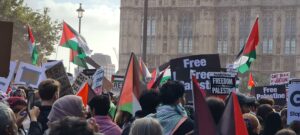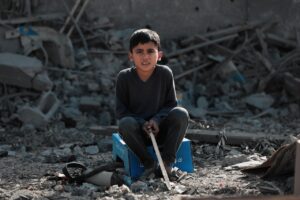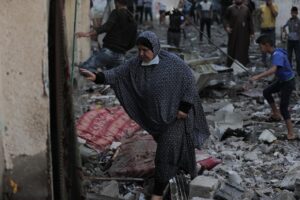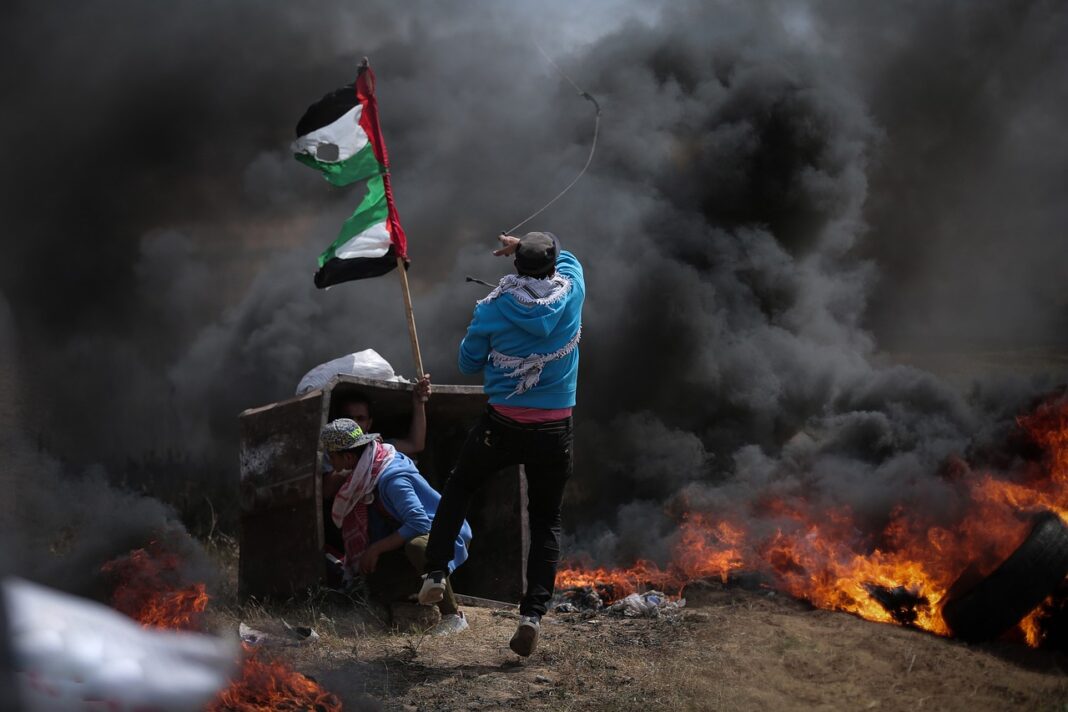In the complex tapestry of the Middle East, the ongoing conflict between Israel and Palestine has once again taken a distressing turn, capturing the world’s attention. As the region grapples with a ground invasion, humanitarian crisis, and geopolitical tensions, the latest chapter in the Israeli-Palestinian saga demands our focus. In this article, we delve into the historical roots, current dynamics, and international implications of the conflict, aiming to provide a comprehensive understanding of the multifaceted challenges unfolding in the heart of the Middle East.

Israel’s Ground Invasion and Humanitarian Crisis in Gaza City
Israel’s ground invasion against Hamas has given rise to a severe humanitarian crisis in Gaza City, where approximately 400,000 people find themselves trapped. The complex situation has been exacerbated by Hamas positioning itself within and below civilian infrastructure, leading to significant collateral damage from Israeli strikes on civilian locations.

Regional Dynamics: Israel, Hezbollah, and Syria
Simmering regional tensions have prompted the United States to engage in shuttle diplomacy. Meanwhile, Israel is engaged in a dual conflict scenario, exchanging rocket fire with Hezbollah in Lebanon and conducting strikes on alleged Iran-linked targets in Syria.
Historical Context: The Israeli-Palestinian Conflict
The roots of the Israeli-Palestinian conflict trace back to the late nineteenth century, culminating in key events such as the first Arab-Israeli War in 1948 and the Six-Day War in 1967. Although the Camp David Accords in 1979 improved relations between Israel and neighboring countries, the question of Palestinian self-determination persisted.
Factionalism and Political Shifts
Factionalism among Palestinians heightened when Hamas won the parliamentary elections in 2006, which displaced the long-standing majority party, Fatah. Furthermore, this has resulted in Hamas gaining control of the Gaza Strip, a region under the semi-autonomous Palestinian Authority since 1993. Also, western governments, including the United States and the European Union, did not acknowledge Hamas’ electoral victory due to its designation as a terrorist organization.
Previous Escalations and Global Influences
Previous escalations in 2014 and 2018 witnessed military confrontations between the Israeli military and Hamas, with a cease-fire brokered by Egypt in 2014. The Trump administration’s policy shifts, including canceling funding for the UN Relief and Works Agency and brokering the Abraham Accords, marked significant changes in the dynamics of the conflict.
Escalation in 2023: Biden’s Support and International Concerns
The Israeli-Palestinian conflict escalated in October 2023, with President Joe Biden expressing support for Israel and the United States sending renewed arms shipments. The UN Security Council failed to reach a consensus on the renewed violence, causing international concerns for civilian safety and a hostage situation.
Humanitarian Impact and Displacement
The conflict has resulted in a significant increase in casualties, with approximately 1,300 Israelis and 10,000 Palestinians killed in the first month alone. Iran’s patronage relationship with Hamas and other extremist groups raises concerns about the potential expansion of the war to the north. In addition, this has displaced millions of Palestinians, posing a dilemma for Egypt and Jordan, which have absorbed large numbers of Palestinians in the past but are resisting accepting them during the current war. Negotiations have led to only 1,100 people exiting Gaza through the Rafah border crossing to Egypt, leaving 1.5 million displaced Gazans facing dire living conditions and security risks.

International Responses: Who Supports Israel, and Who Doesn’t?
In the current conflict, the U.S., EU, and other Western countries have condemned the Hamas attack on Israel, providing over $260 billion in military and economic aid. Russia and China have maintained contact with both sides, with Russia blaming U.S. policy for the lack of peace in the Middle East. Also, Israel’s arch-enemy, Iran supports Hamas and Hezbollah but, denies direct involvement in the attack.
Article sources:
Israel Gaza war: History of the conflict explained. (2023, November 15). BBC News. https://www.bbc.com/news/newsbeat-44124396
Israeli-Palestinian Conflict | Global Conflict Tracker. (n.d.). Global Conflict Tracker. https://www.cfr.org/global-conflict-tracker/conflict/israeli-palestinian-conflict
Image sources:
Pixabay. (2023). Pixabay. Pixabay.com. https://pixabay.com/
Unsplash. (2022). Beautiful Free Images & Pictures. Unsplash; Unsplash. https://unsplash.com/



